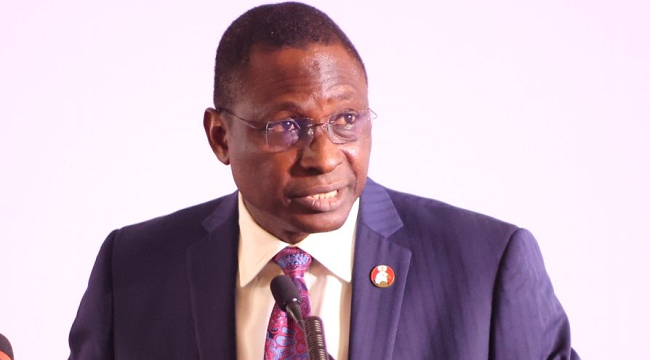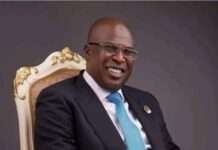

The Economic and Financial Crimes Commission (EFCC) has opened discussions with the Presidential Committee on Campaign against Social Vices in Secondary and Tertiary Institutions to strengthen efforts aimed at sensitising students against economic and social misconduct.
The collaboration was proposed during a courtesy visit by the Presidential Committee to the EFCC Chairman, Mr Ola Olukoyede, at the Commission’s headquarters.
Represented by the Director of Fraud Risks Assessment and Control (FRAC), CE Ibrahim Shazali, the EFCC Chairman reaffirmed the agency’s commitment to combating corruption and related vices among young people. He explained that the Commission maintains a zero-tolerance stance and will continue to instil integrity and ethical behaviour in schools.
“The campaign against social vices is something that the EFCC has been engaged in since inception. We have established Integrity Clubs in primary and secondary schools as well as Zero Tolerance Clubs in tertiary institutions. All of this is to encourage students across different levels to embrace values that shield them from corrupt practices,” Shazali said.
He further stressed that the EFCC prioritises preventive measures such as sensitisation and re-orientation because they are cost-effective, practical, and aligned with the agency’s mandate.
According to him, the Commission remains ready to work with all stakeholders to rid Nigeria of corruption and financial crimes. He recalled that Mr Olukoyede had, during his Senate screening, pledged to drive preventive frameworks, noting that “it is easier to prevent corruption than to allow it to take root.”
Shazali pointed out that challenges such as drug abuse, cybercrime, alcoholism, cultism, and other social vices within schools often fuel anti-social behaviour, including corrupt practices. He assured the committee of EFCC’s full support, while urging it to align its work with the Commission’s existing integrity and zero-tolerance clubs.
On his part, the Chairman of the Presidential Committee, Ugokwe, stated that the fight against corruption cannot be sustained without building strong values among young Nigerians. He explained that the committee was created to “design, coordinate and implement a comprehensive national campaign against social vices in Nigerian secondary schools and tertiary institutions.”
Ugokwe outlined the committee’s four pillars as awareness and sensitisation, capacity building and training, policy and advocacy, and collaboration and enforcement support. He called on the EFCC to continue its momentum, noting that initiatives such as joint campus sensitisation programmes, anti-corruption clubs, annual essay competitions, training exercises, and media campaigns would help consolidate progress in the fight against corruption and other vices.








